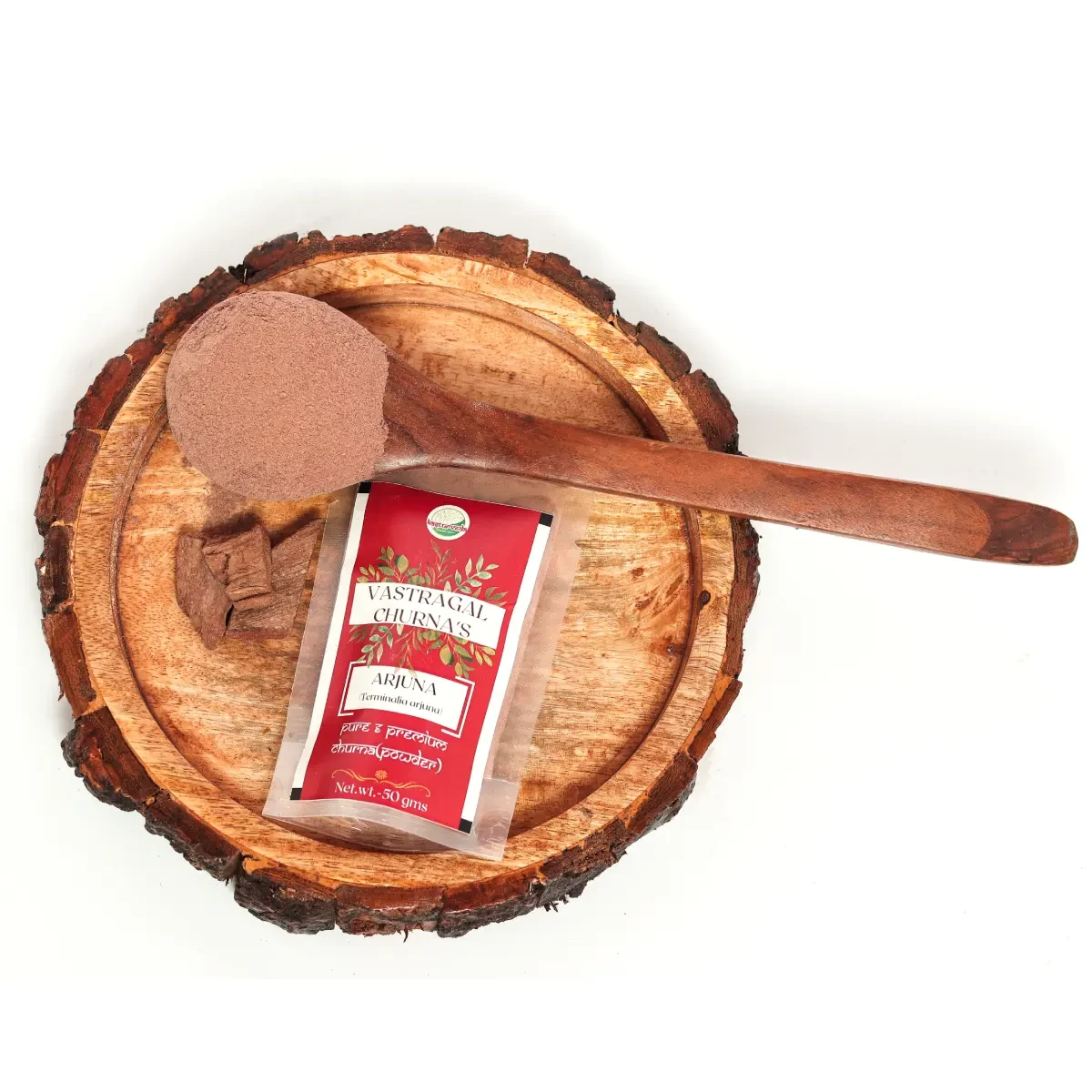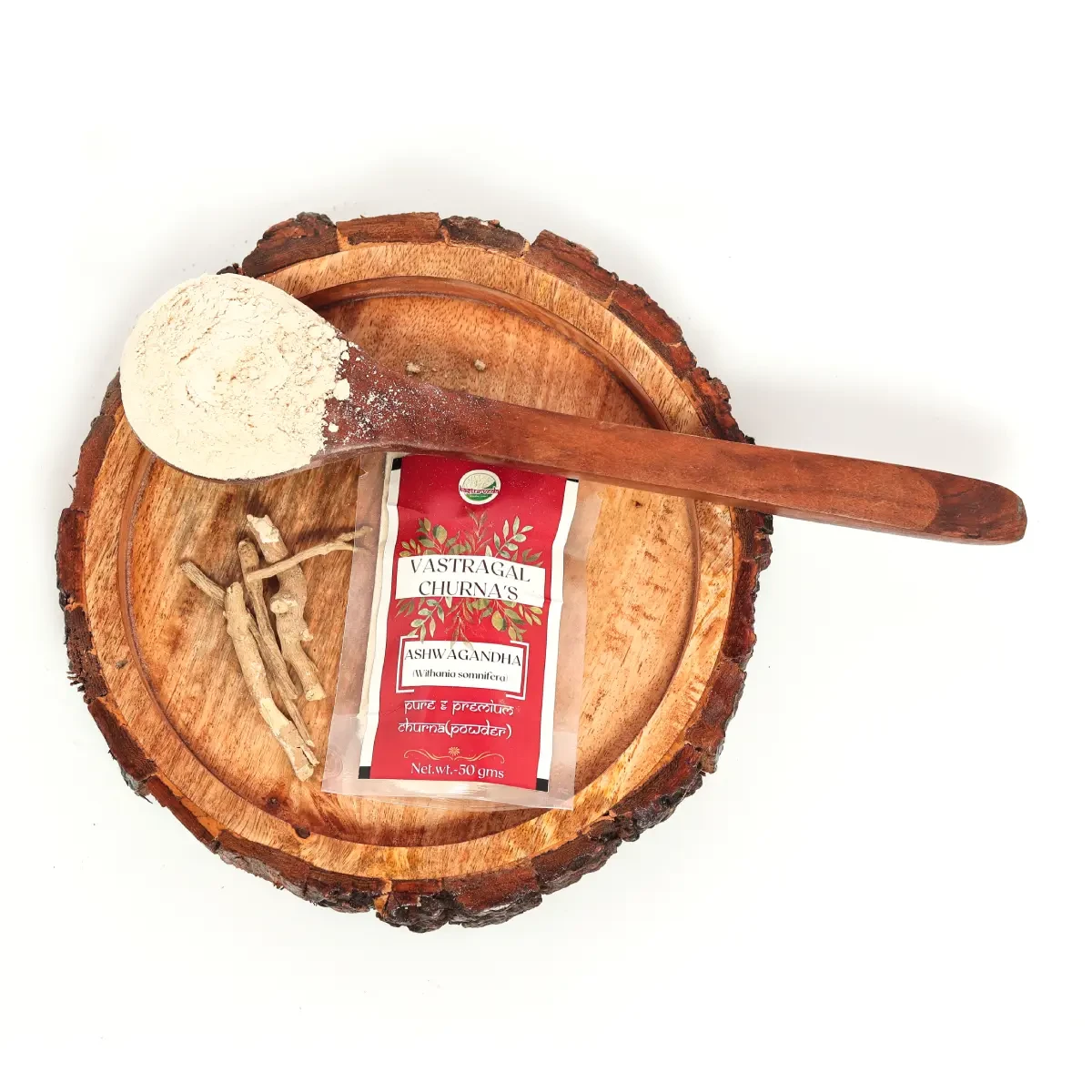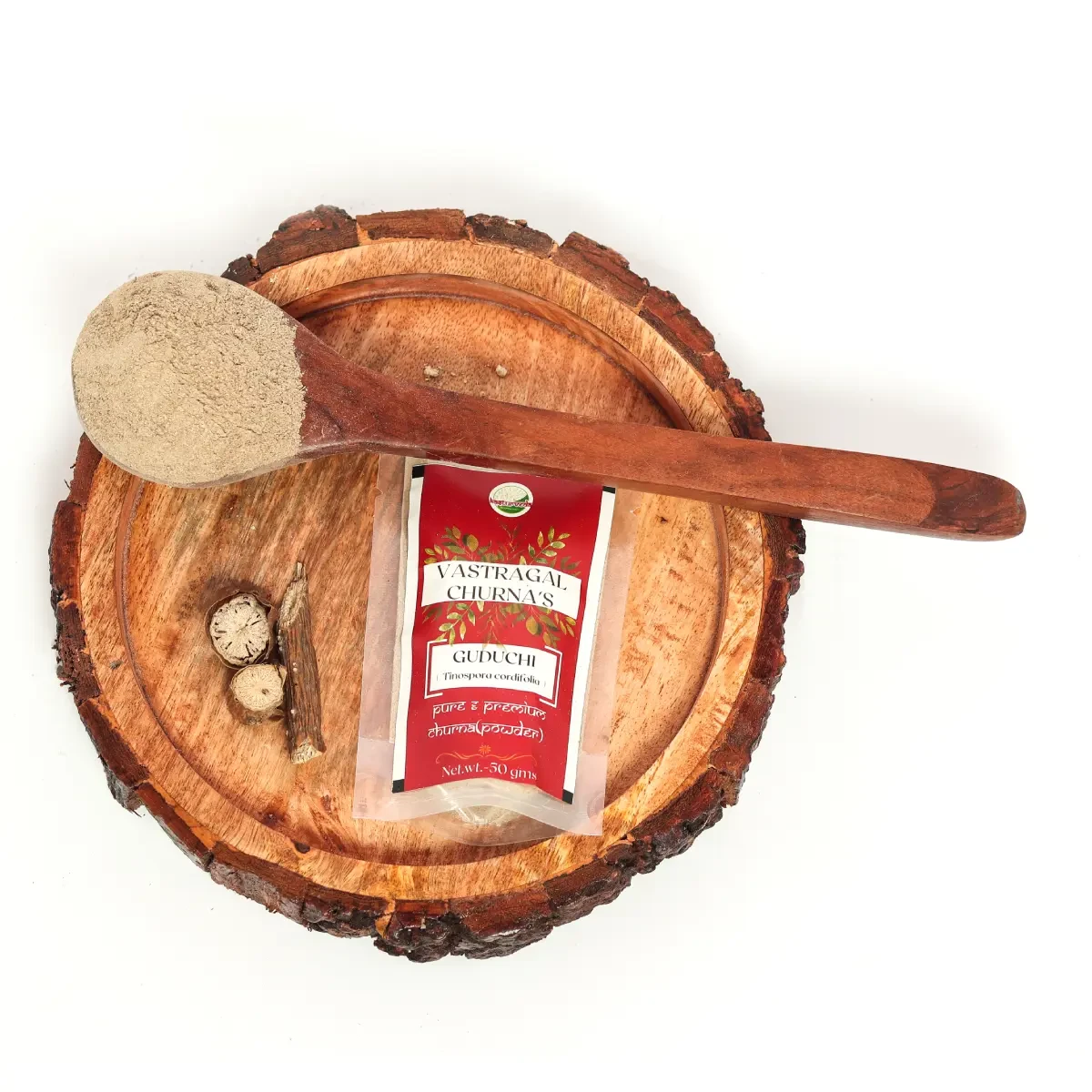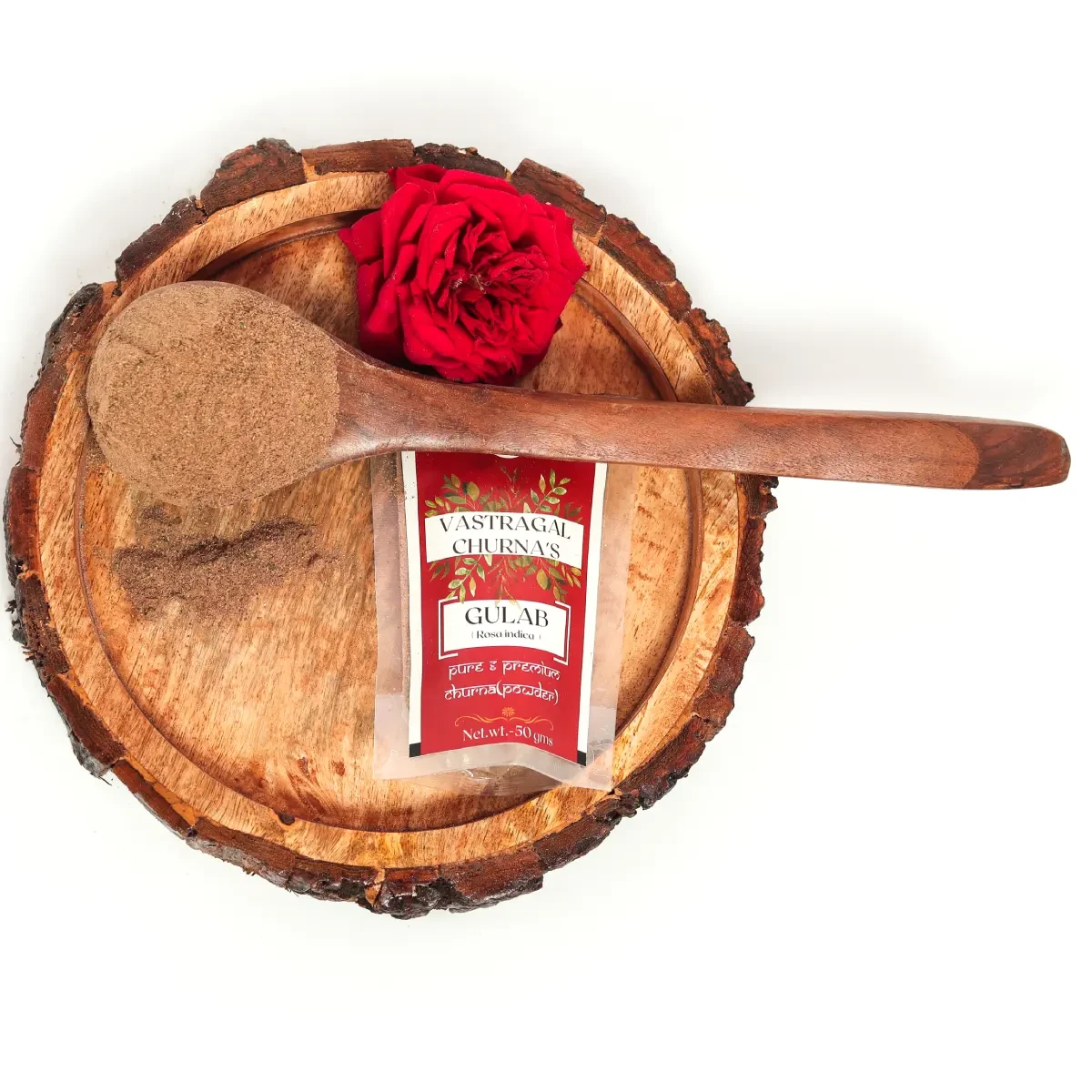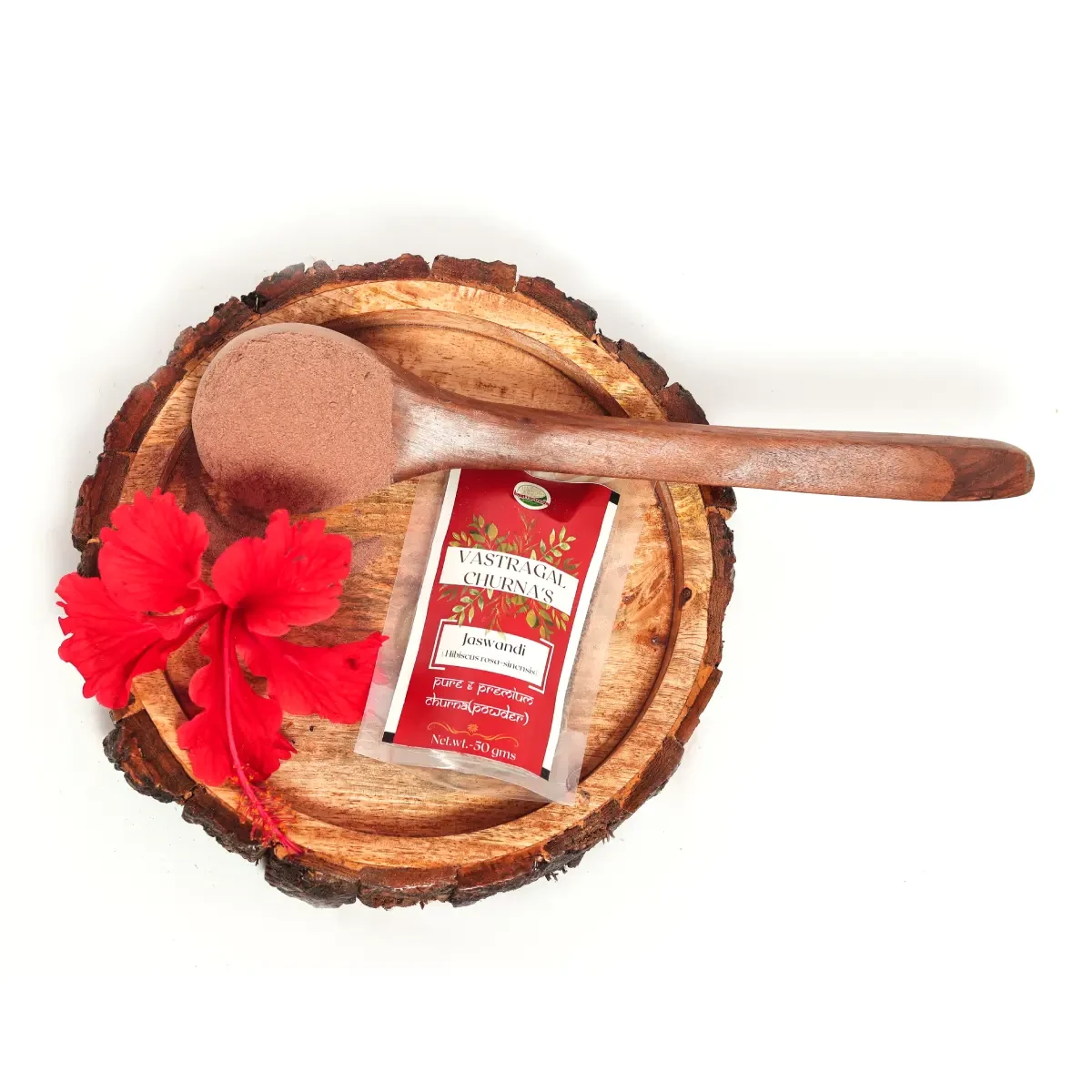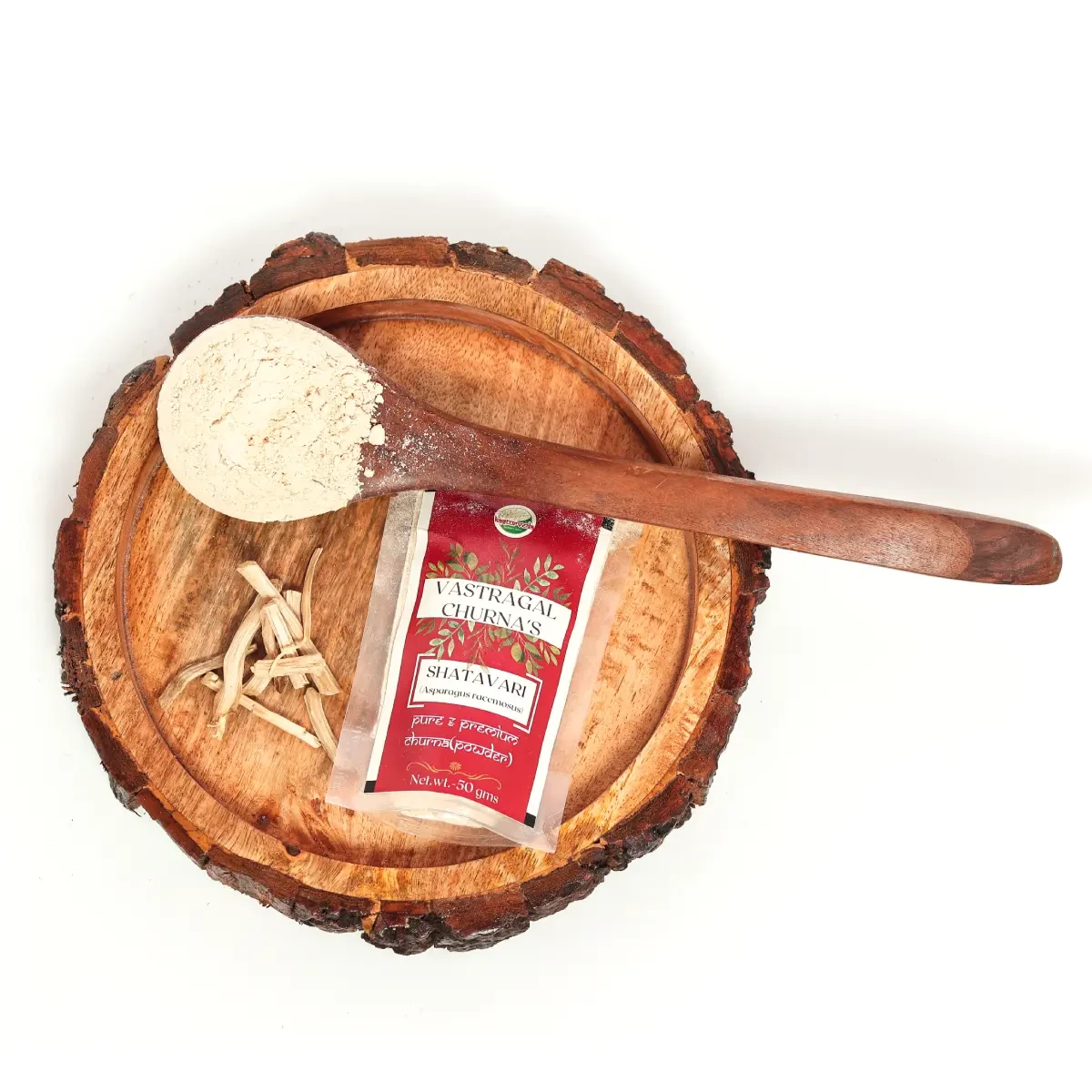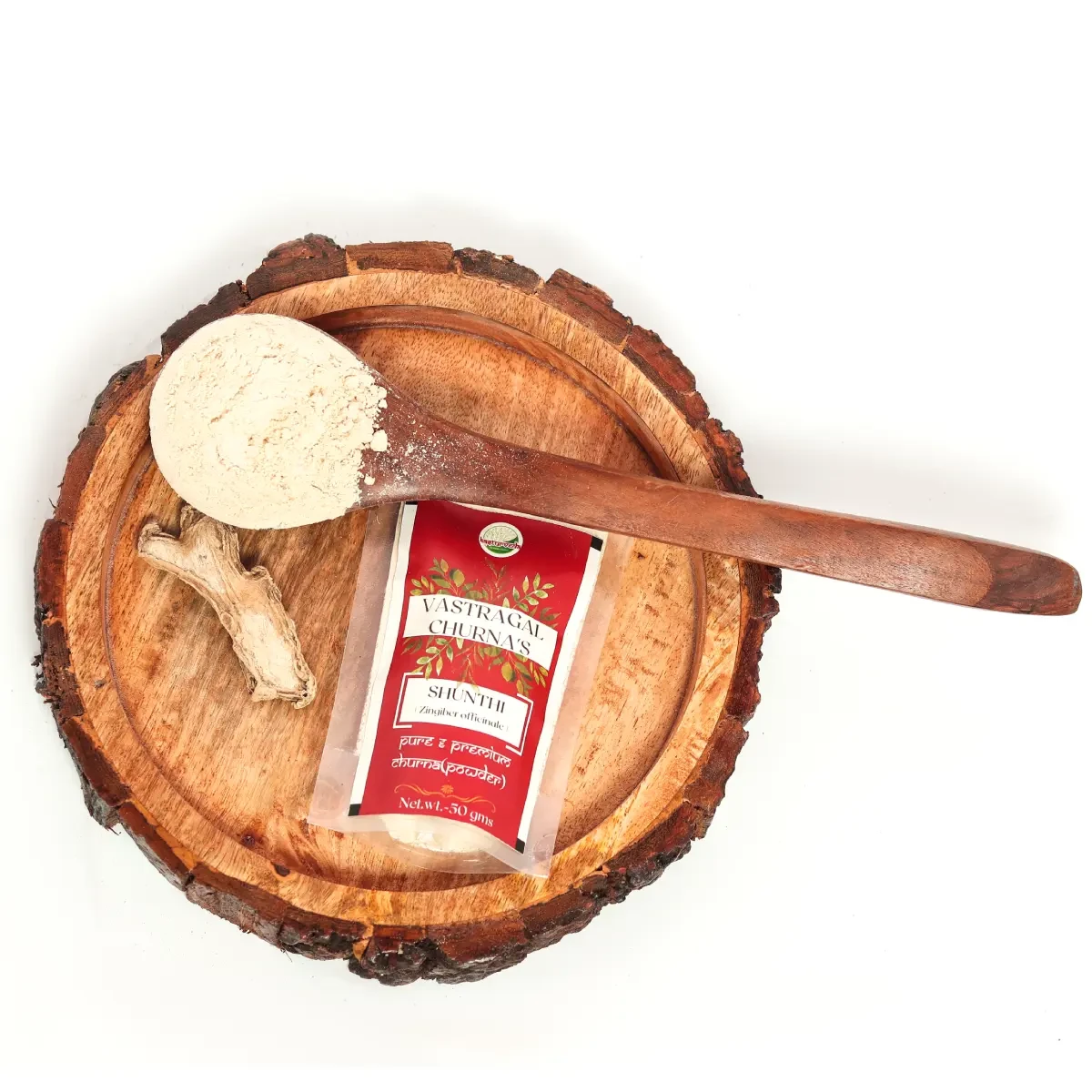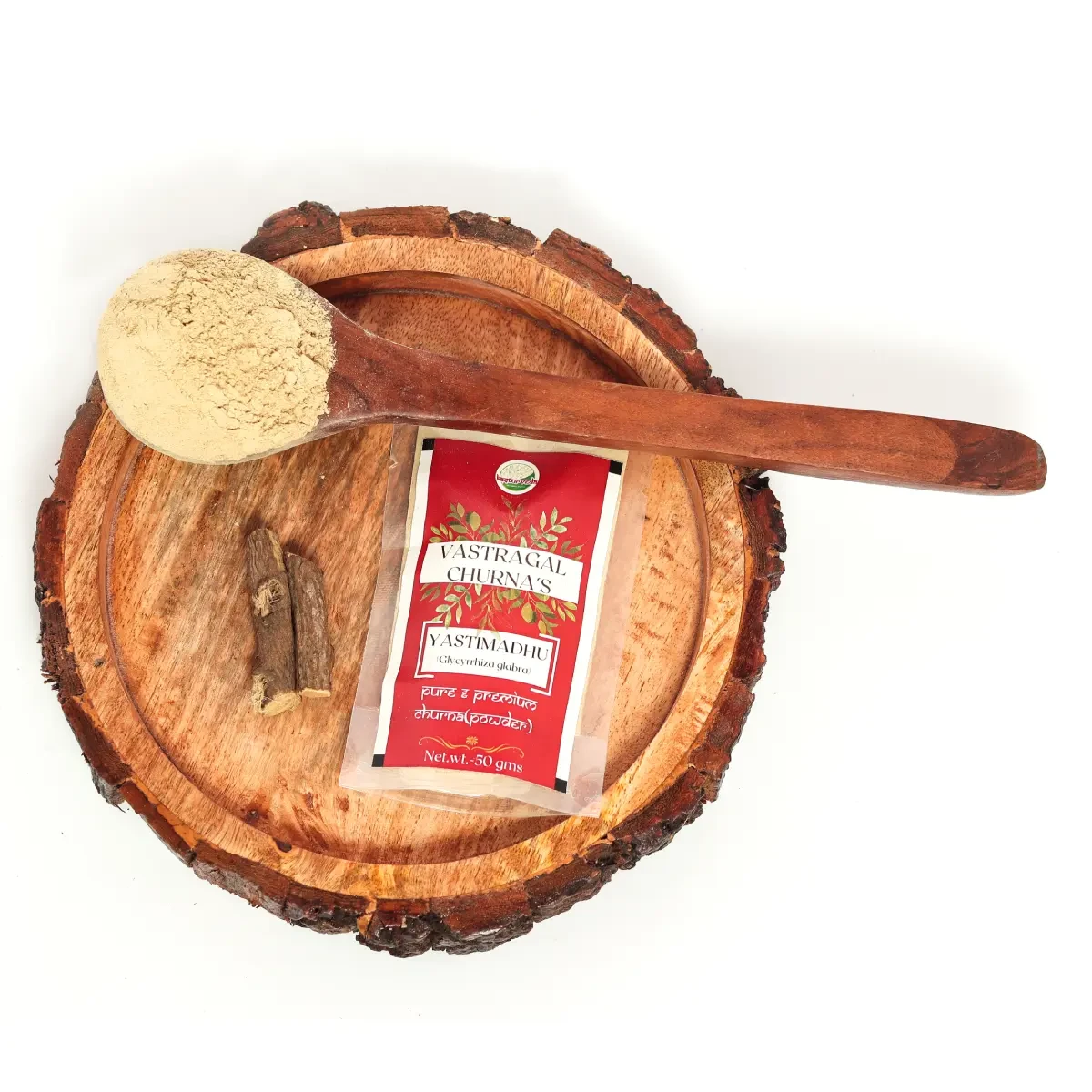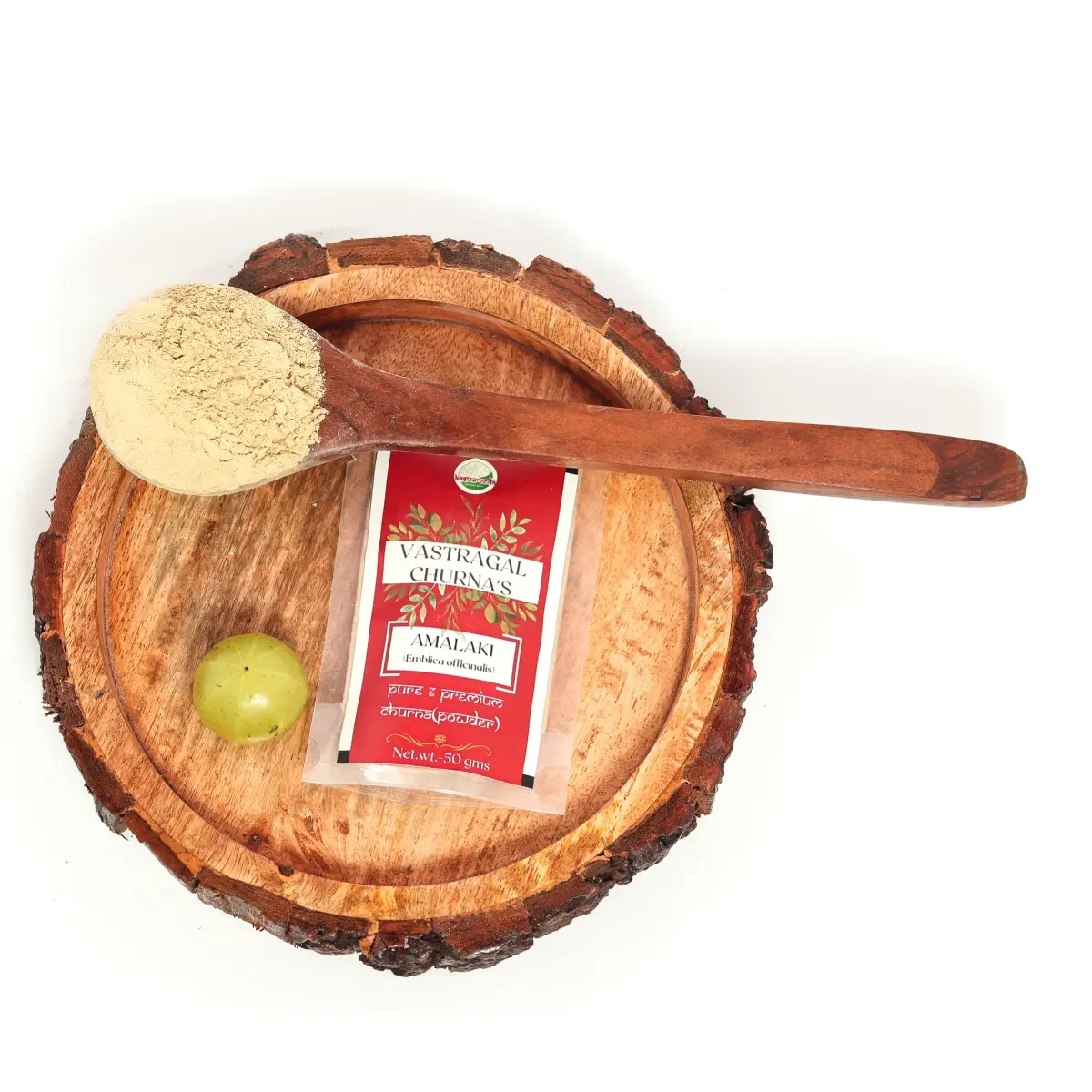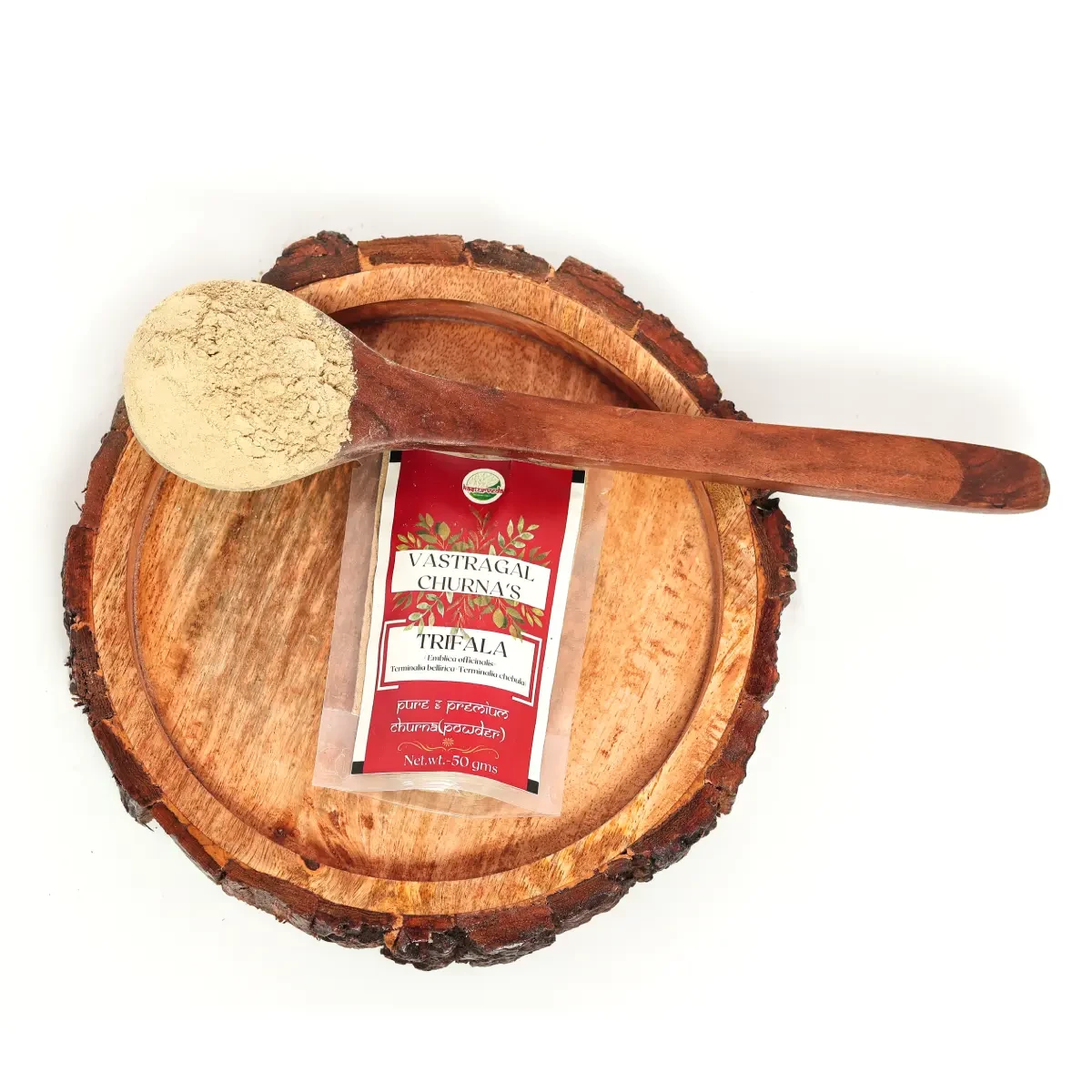
Triphala powder





(1 Reviews) Write a review
Rs. 100 Rs.100
Available in:
1


Shipping

Available

Product Benefits-
1. Benefits of Triphala for Infections:
Triphala and its components have demonstrated potent antimicrobial properties against a variety of microorganisms.
Triphala churna has proven action against the human immunodeficiency virus (HIV).
Triphala churna and triphala mashi have shown antibacterial properties against a variety of bacteria like E. coli and S. aureus.
2. Benefits of Triphala for Dental Care:
Triphala reduced levels of chemicals which are implicated in the destruction of tissue during periodontitis.
Triphala mouthwash was tested clinically and found to be as effective as chlorhexidine in lowering plaque scores and inhibiting Lactobacillus bacteria microbial levels.
3. Benefits of Triphala for Stress:
Triphala supplementation has been shown to alleviate stress.
Triphala treatment can prevent cold stress-induced behavioural and biochemical abnormalities by increasing lipid peroxidation and corticosterone levels.
In rats, triphala protects against noise-induced alterations in antioxidant and cell-mediated immune response.
4. Benefits of Triphala for Joint:
Triphala prevented monosodium urate crystal-induced arthritis in mice (gouty arthritis) by reducing various parameters like paw volume, lysosomal enzymes, β-glucuronidase lactate dehydrogenase lipid peroxidation, and the proinflammatory cytokine tumour necrosis factor-alpha, according to research.
It might have potential use in the treatment of gout in humans, however, more studies are needed for the same.
5. Benefits of Triphala for Digestive Tract:
Castor oil-induced diarrhoea was prevented by extracts of triphala churna powder and triphala mashi.
The extracts had a strong antidiarrheal effect, as demonstrated by increased first defecation time, cumulative faceal weight, intestinal transit time, improved stool volume, stool frequency, stool consistency, decreased mucus level in stool, and flatulence.
6. Benefits of Triphala for Liver:
In mice, triphala was found to be beneficial against acetaminophen-induced liver damage, but with less efficacy than silymarin.
Triphala lowered the levels of proinflammatory cytokines and lipid peroxides while also restoring the levels of many antioxidant enzymes and reducing liver damage as seen by lower liver enzyme values.
7. Benefits of Triphala for Diabetes:
Animal studies have demonstrated that giving the same amount of triphala and its separate ingredients to normal and alloxan-induced diabetic rats lowered serum glucose levels. Thus, with more research, triphala might be useful in treating diabetes in humans.
8. Benefits of Triphala for Obesity:
After the treatment of mice with triphala in an anti-obesity study, their body weight was observed to be lower when compared to control animals.
Gallic acid is a phenolic molecule found in triphala that was chosen as the bioactive marker because of its anti-obesity activity.
9. Benefits of Triphala for Heart:
Triphala has been found to have a lipid-lowering impact on rats, with significant reductions in total cholesterol, low-density lipoprotein, very low-density lipoprotein, and free fatty acid, indicating hypocholesteremic condition.These properties make it cardio-protective.
10. Benefits of Triphala for Skin:
The topical application of triphala extract aided wound healing in rats infected with a variety of bacteria, according to a study.
Experiments revealed that the triphala ointment reduced bacterial count and promoted wound closure by increasing collagen, hexosamine, and uronic acid levels.
11. Benefits of Triphala for Radioprotective activity:
Triphala has been proven in preclinical trials to have radioprotective properties when taken orally.
The most effective action of triphala was seen when given before irradiation, lowering DNA damage in both blood white blood cells and spleen cells, the normalizing activity of certain enzymes like xanthine oxidase and super oxidase dismutase found in the intestine.
This indicates that the observed effects were mediated through inhibition of oxidative damage in the cells and organs.
12. Benefits of Triphala for Immunity:
Triphala has been shown to have potent immunomodulatory properties in a variety of animal models.
Flavonoids, tannins, alkaloids, glycosides, saponins, and phenolic substances are thought to have immunomodulatory properties.
Triphala treatment increased antioxidant activity and lowered corticosterone levels
in animals exposed to noise stress, according to research.
13. Benefits of Triphala for Antioxidant activity:
According to research, taking triphala boosts the activity of antioxidant enzymes which may have resulted in a considerable reduction in stomach cancers in mice.
When rats were given triphala and were subjected to noise stress, similar results were reported.
Such findings point to triphala’s ability to act as an antioxidant and to protect against a variety of stressors and illnesses.
14. Benefits of Triphala for Eyes:
Triphala was found to be beneficial in preventing and reducing selenite-induced cataract formation, according to a study.
In animal trials, triphala restored antioxidant enzyme levels, resulting in a reduction in nuclear cataracts.
As per Ayurveda, triphala can also help prevent blindness and near-sightedness.
15. Benefits of Triphala for Cancer:
In cancer studies, triphala has shown killing activity on cancer cells.
Its main component gallic acid may be responsible for stopping cancer cell growth.
An increased concentration of triphala was found to reduce the viability of breast cancer cells while having no effect on normal breast cells.
In breast cancer cells, triphala caused an increase in intracellular reactive oxygen species.
16. Benefits of Triphala for Aging:
On human skin cells, triphala extract has a strong antiaging effect.
It stimulates collagen-1 and elastin-synthesizing genes and antioxidant genes responsible for cellular antioxidants in human skin cells.
Due to the presence of protective phytochemicals, it suppresses melanin synthesis and hyperpigmentation.
Description:
Triphala (Sanskrit; Tri means three and phala means fruits) is a well-recognized and revered polyherbal medicine consisting of dried fruits of the three plant species Emblica officinalis (Family Euphorbiaceae), Terminalia bellerica (Family Combretaceae) and Terminalia chebula (Family Combretaceae).
Direction to use:
Therapeutic Uses of Triphala :
It is described as a tridoshic Rasayana in Ayurveda, capable of balancing and rejuvenating the three doshas that regulate human life: Vata, pitta, and Kapha.
It is widely used in several disease conditions owing to its following properties:
laxative
anti-inflammatory
antiviral
Blood purifying
analgesic
anti-arthritic
hypoglycemic
anti-ageing
antibacterial
Triphala is used to treat fatigue, oxidative stress, and infectious disorders like tuberculosis, pneumonia, AIDS, and periodontal disease, among others. for headaches, dyspepsia, ascites, and leukorrhea.
